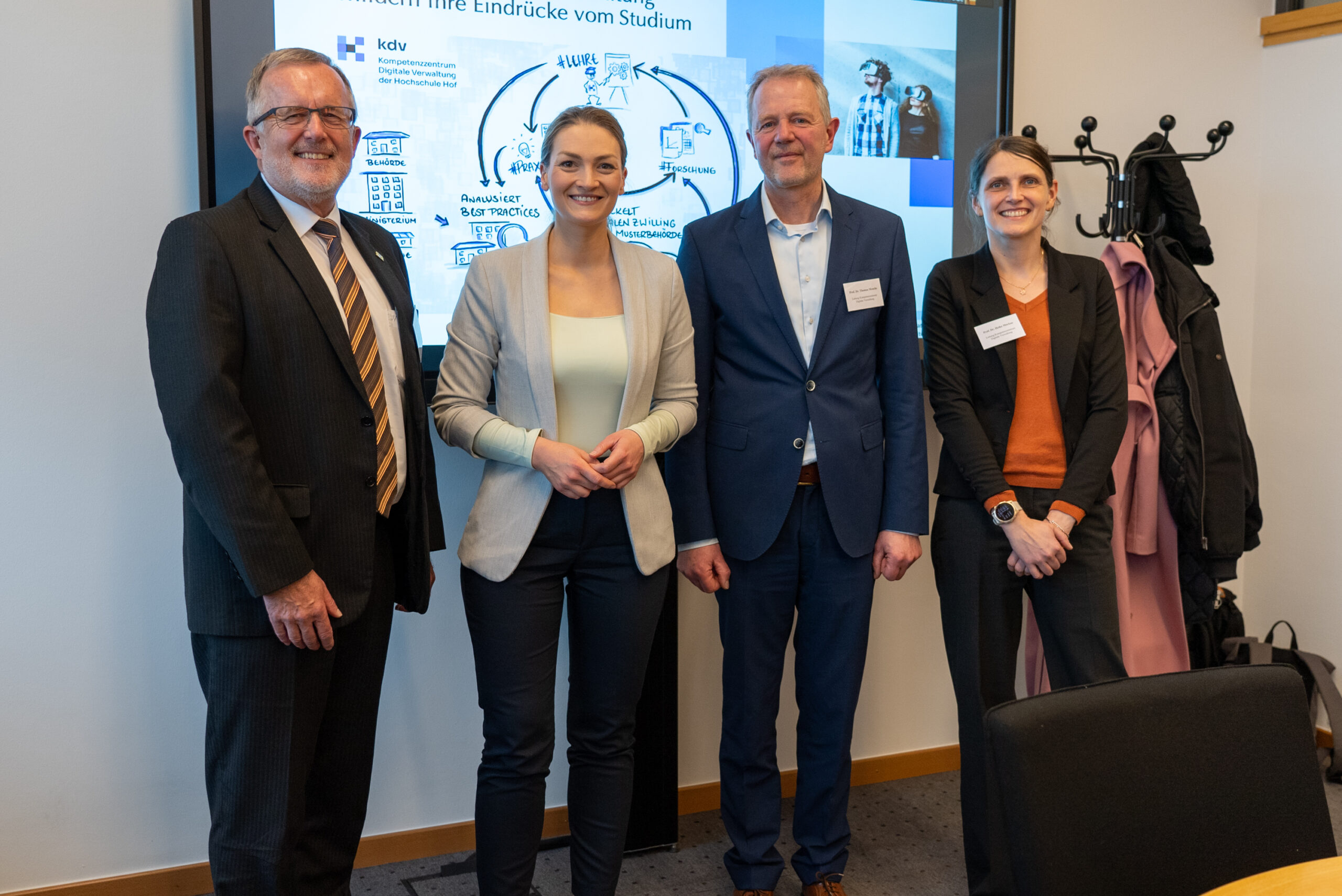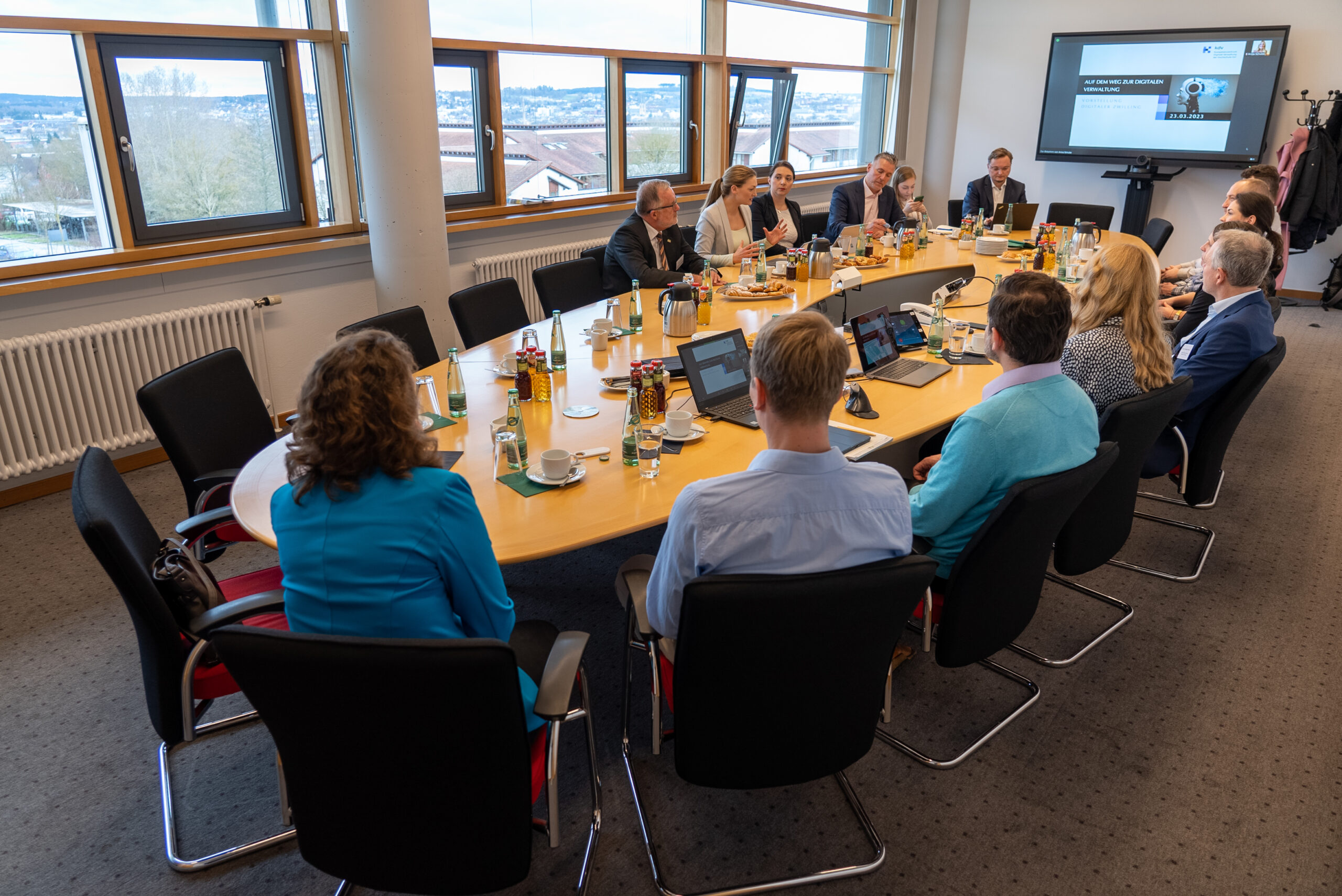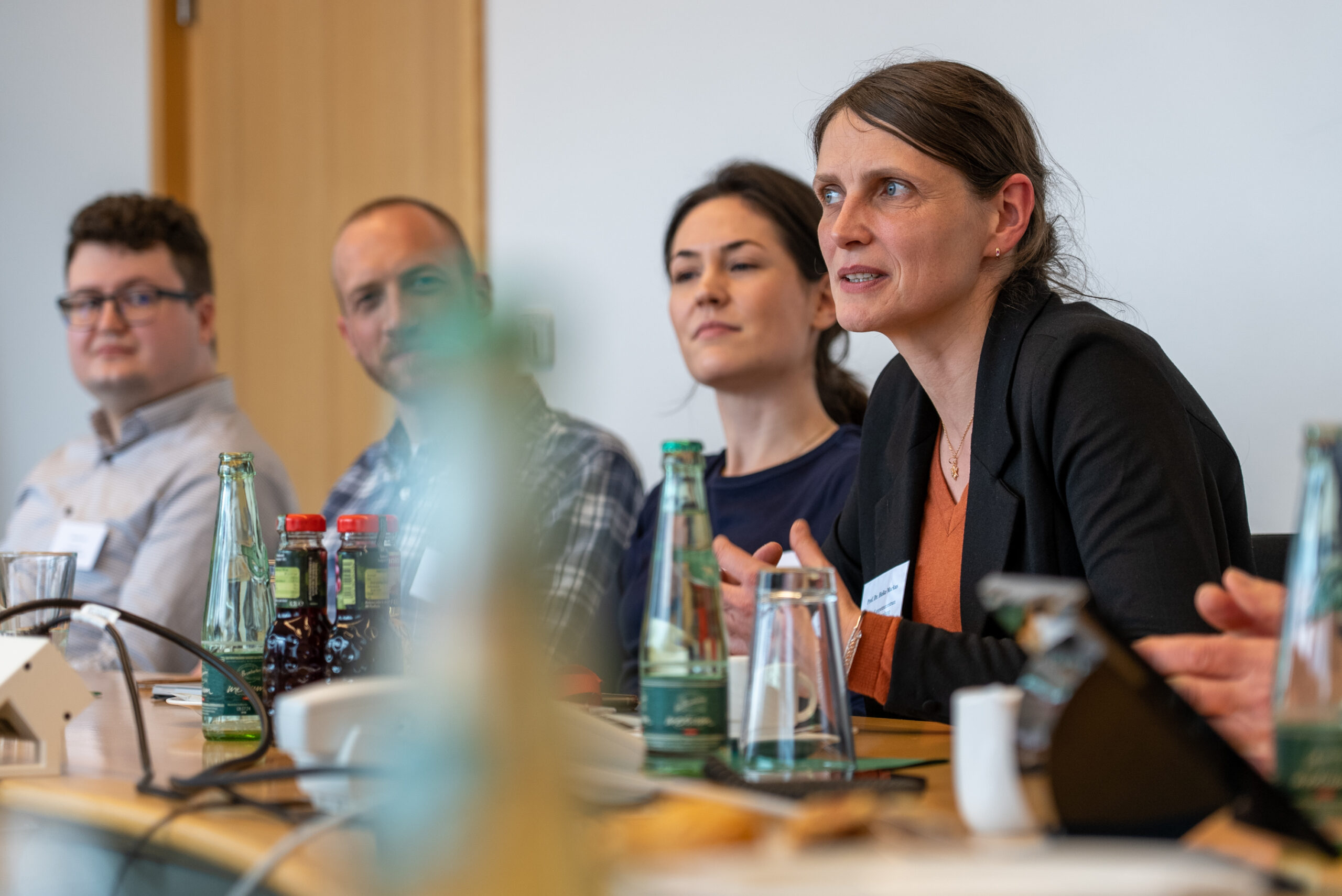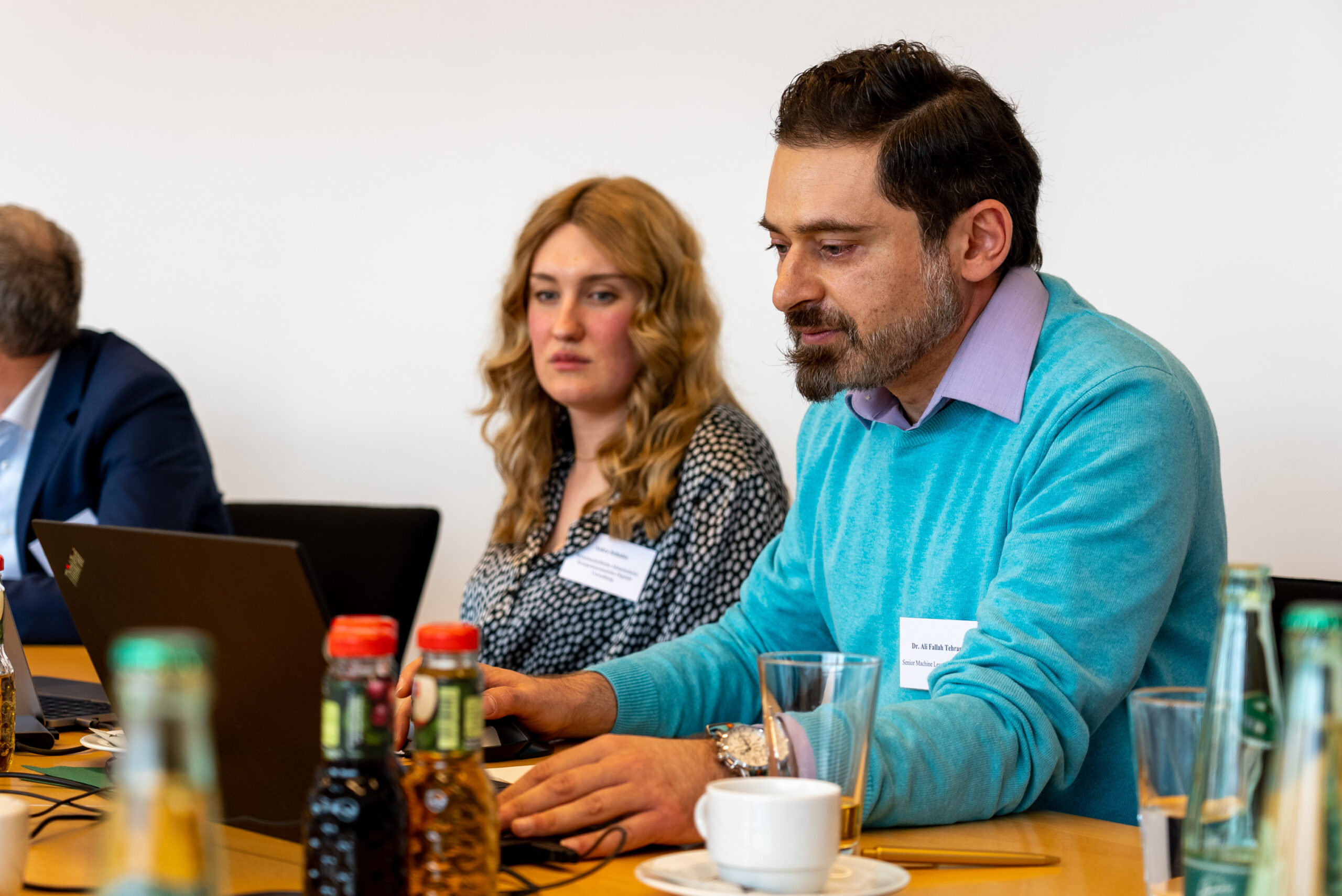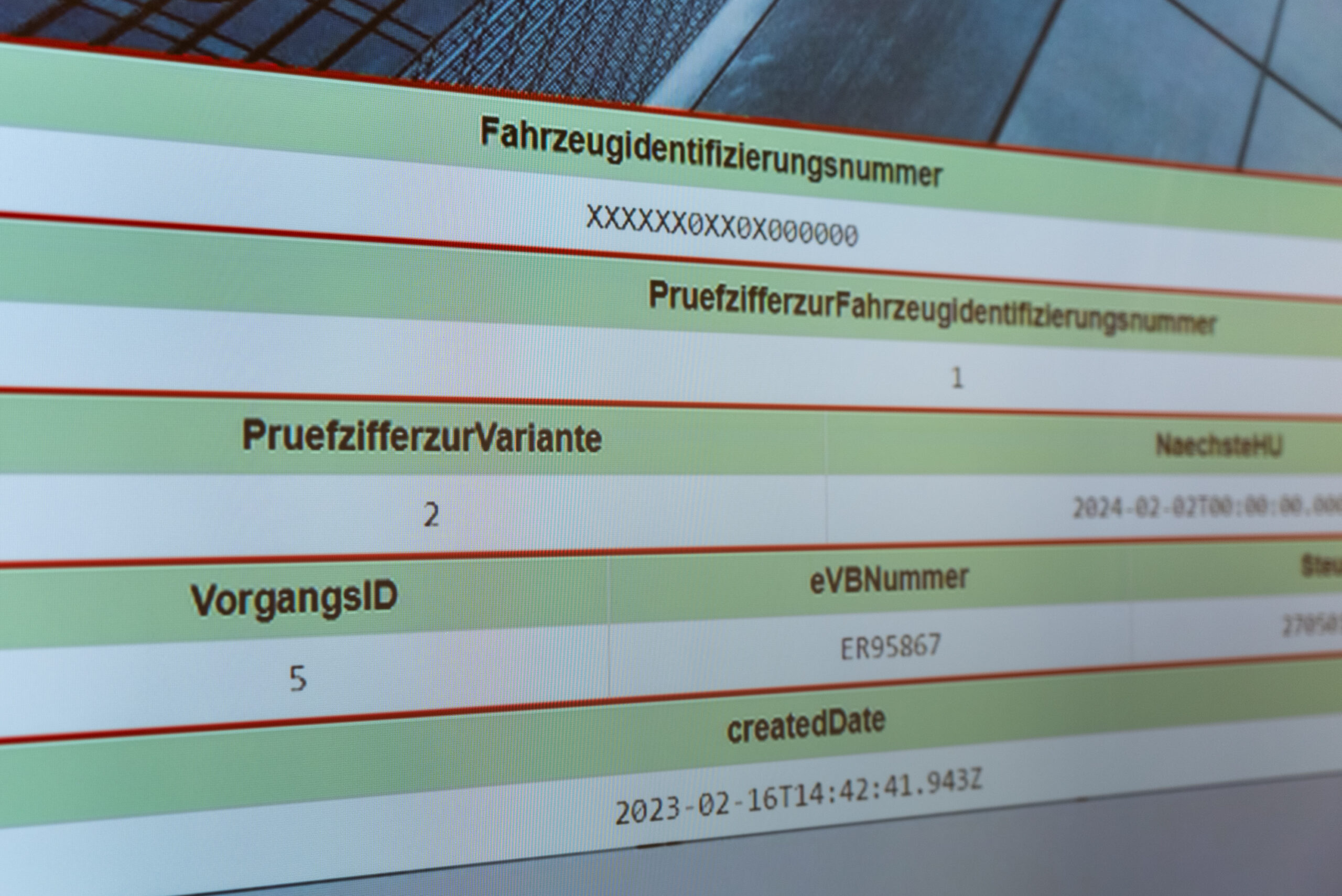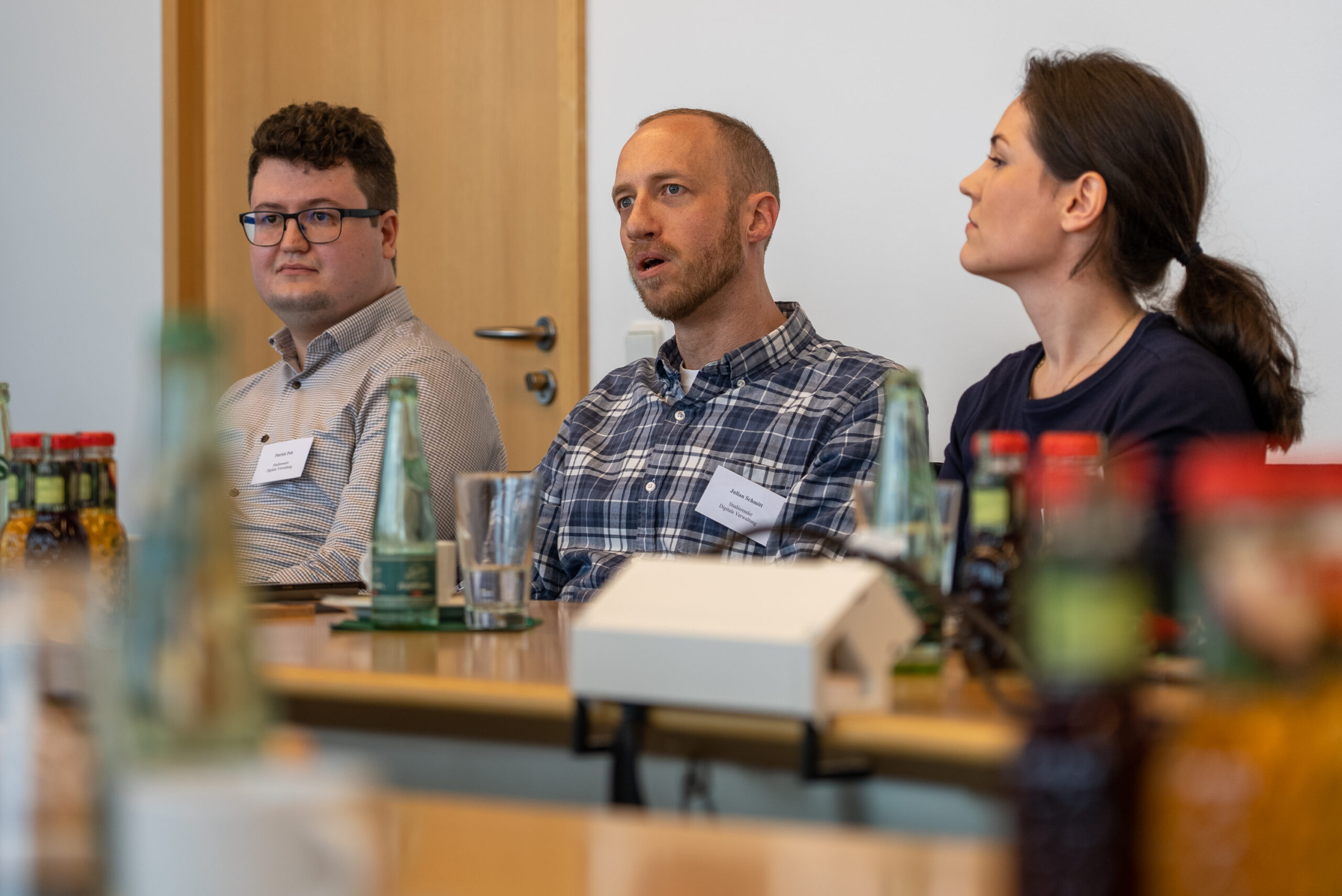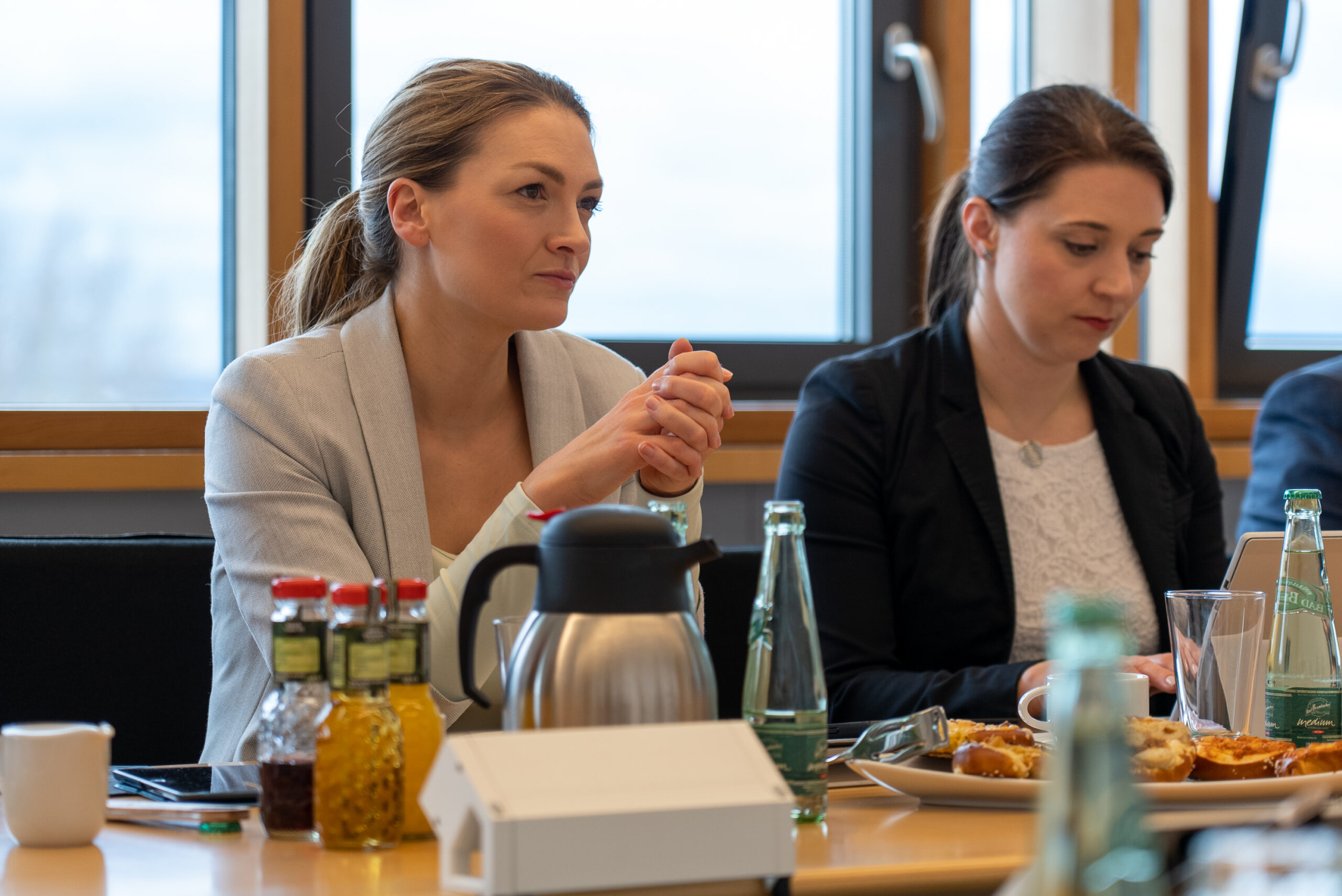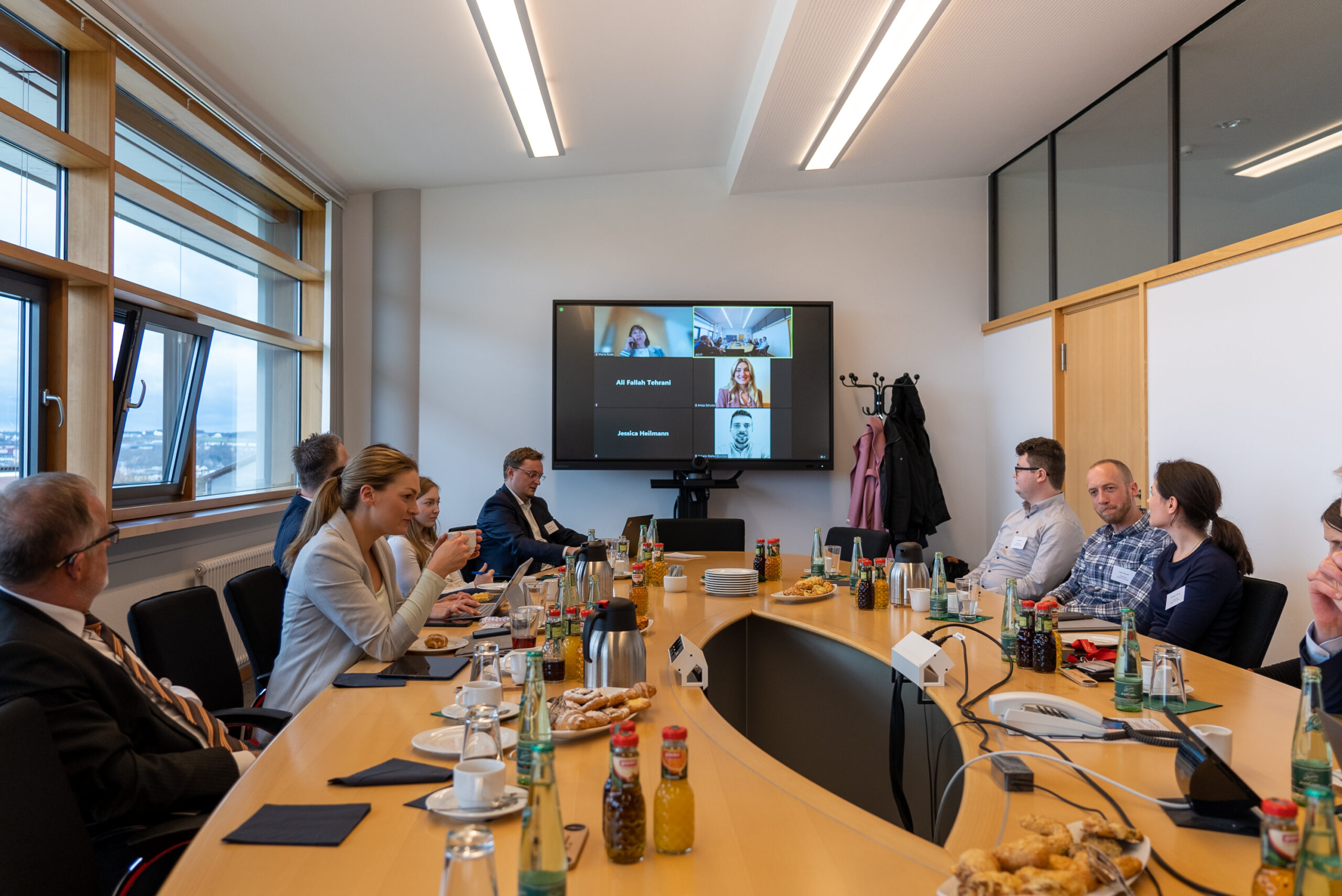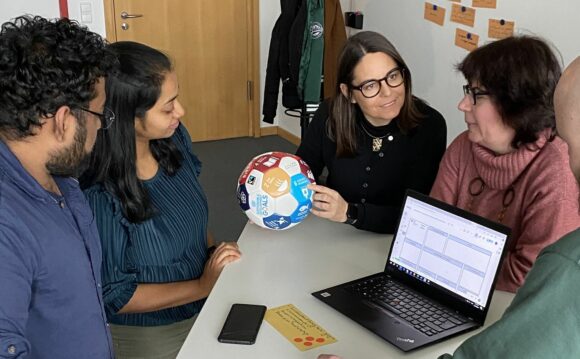The digitization of public administration is one of the state’s major mammoth projects on the way to making bureaucratic processes more citizen-friendly and effective. In order to advance this, the Competence Center for Digital Administration (KDV) was established 2 years ago at Hof University of Applied Sciences. In the presence of Judith Gerlach, the Bavarian State Minister for Digital Affairs, the first results have now been presented. A digital twin of public authorities shows how easily applications and forms could be processed in the future. Admittedly, however, many unanswered questions remain in the areas of data protection and personal rights.
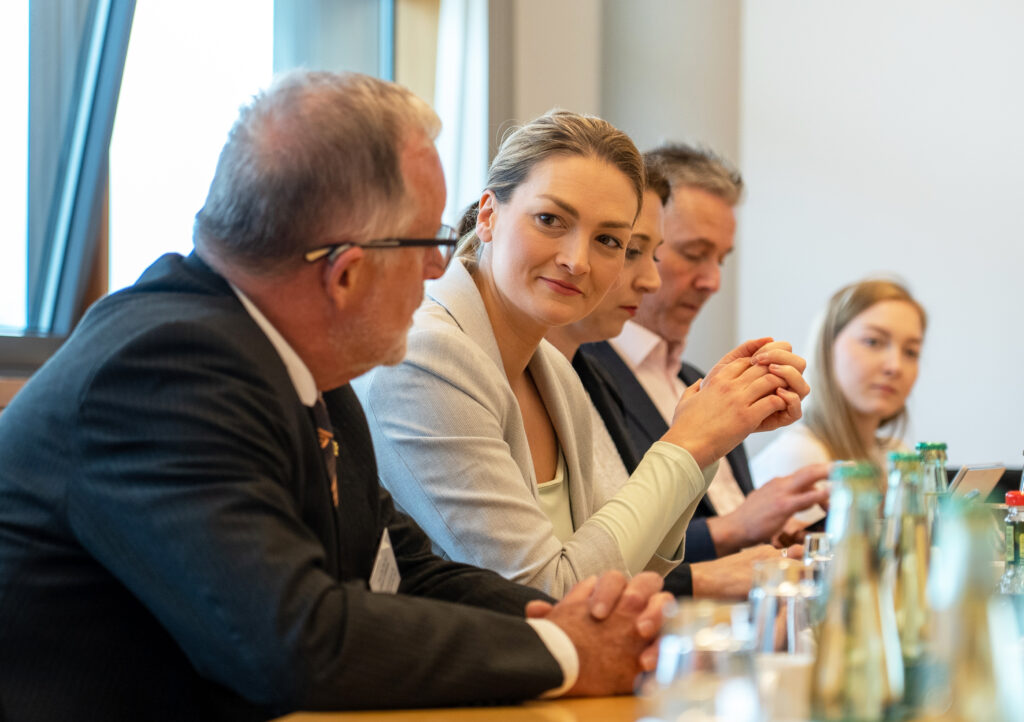
Image: Hof University of Applied Sciences;
The misery and the great need for action that the state now faces on the issue of digitization became clear even during the welcoming speech:
Faster processes overdue
“Demography is striking relentlessly. Municipalities in particular are finding fewer and fewer capable employees.” And further:
Analog processes absolutely must be redesigned, faster and digitally, otherwise our country will drive full speed into the wall!”
Prof. Dr. Dr. h.c. Jürgen Lehmann, University President
That’s why he’s glad that the topic is being driven forward with commitment at Hof University of Applied Sciences. In the future, digital managers who understand and implement processes and also incorporate the possibilities of artificial intelligence will also be in demand in state institutions. Prof. Dr. Thomas Meuche and Prof. Dr. Heike Markus, head of the Competence Center Digital Administration, emphasized the importance of functioning municipalities:
If cities and municipalities don’t function, citizens lose confidence in the state as a whole.”
Prof. Dr. Thomas Meuche
He said the university now wants to formulate offers and proposals on how to prepare the ground for new paths.
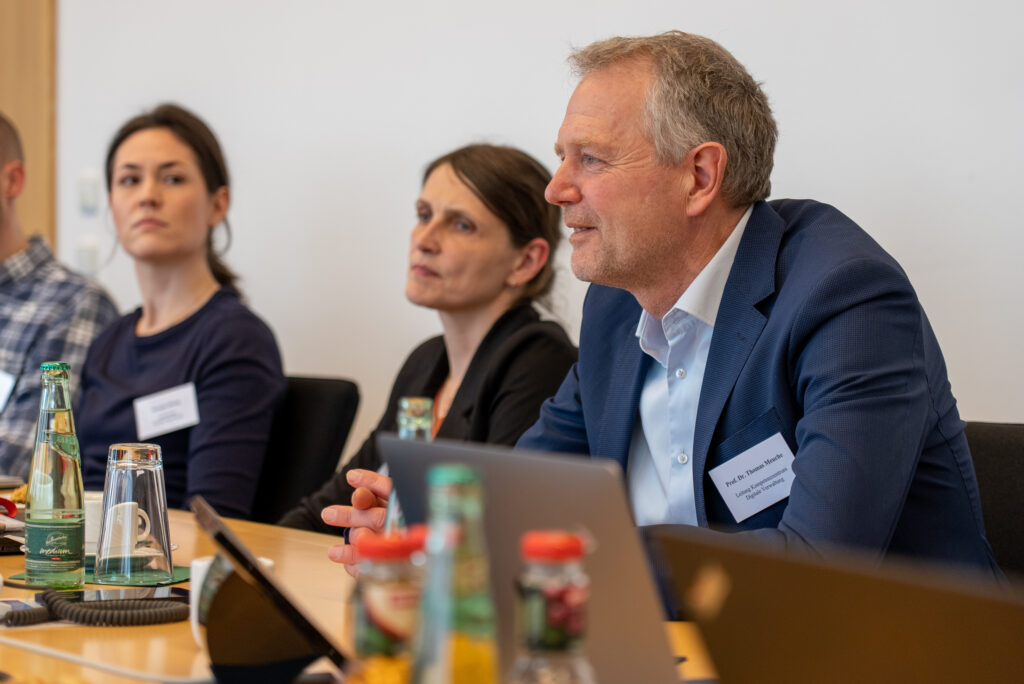
Image: Hof University of Applied Sciences;
Not “sexy,” but urgently needed
Digital Minister Gerlach began by praising the Digitalcampus Bayern – a qualification platform for public employees – and the many other joint projects her ministry has with Hof University of Applied Sciences, and she stressed that the digitization of administration is by no means an end in itself:
At its core, it is about how we as a state want to present ourselves to citizens in the future – how citizen-oriented and how transparent can we be?
Judith Gerlach, Bavarian Minister of State for Digital Affairs
She continued, “This also includes the questions of how we can create understanding for digital processes and thus ultimately build trust for change.” Admittedly, the topic is “not very sexy” for the population at first glance, Gerlach said, as every change initially always provokes reservations. A cultural change is also needed here: “We have to meet people in their situation and make bureaucracy easier, automated and understandable for the individual – that’s the only way to create acceptance. And in this way, we as a state also gain more attractiveness as an employer.” The latter in particular is absolutely necessary, he said, as the federal, state and local governments are often unable to hold their own against companies in the competition for the best minds. To achieve this, she said, many allies, more willingness to experiment and a positive culture of error are needed.
Digital authority twin links data
In order to simplify processes, the KDV has now created a digital twin of an authority, with which the creation and processing of forms and specialized procedures can be made many times easier. The basis for this is the creation of a “citizens’ cloud” in which citizens’ data for the federal, state and local authorities is brought together. According to Prof. Dr. Meuche, the combination of name, birthday and tax identification number alone could significantly speed up a large proportion of official transactions. The data would be maintained and verified in the model in an app by the citizens themselves, the researchers said. The example of vehicle registration – where only the chassis number and insurance number are additionally required – was used to show how quickly such a digital process could already run on a purely technical level. The advantage lies in particular in the avoidance of duplications and the saving of time:
How often today one has to repeatedly provide personal data such as the tax number to authorities that have long been available – much of this could be eliminated.”
Prof. Dr. Heike Markus
Of course, this raises many questions about secure handling: “If a central office were hacked, the damage would be immense. The issues of data protection and personal rights must therefore not be disregarded here and require their own consideration and safeguarding,” said Prof. Lehmann. This is of course correct, but the question of data security should not lead to the existing problem not being tackled at all, according to the researchers responsible. The added value of a digital solution must take precedence over the existing risks, and the processes must be transparent at all times. In addition, citizens must give their consent to the data processing.
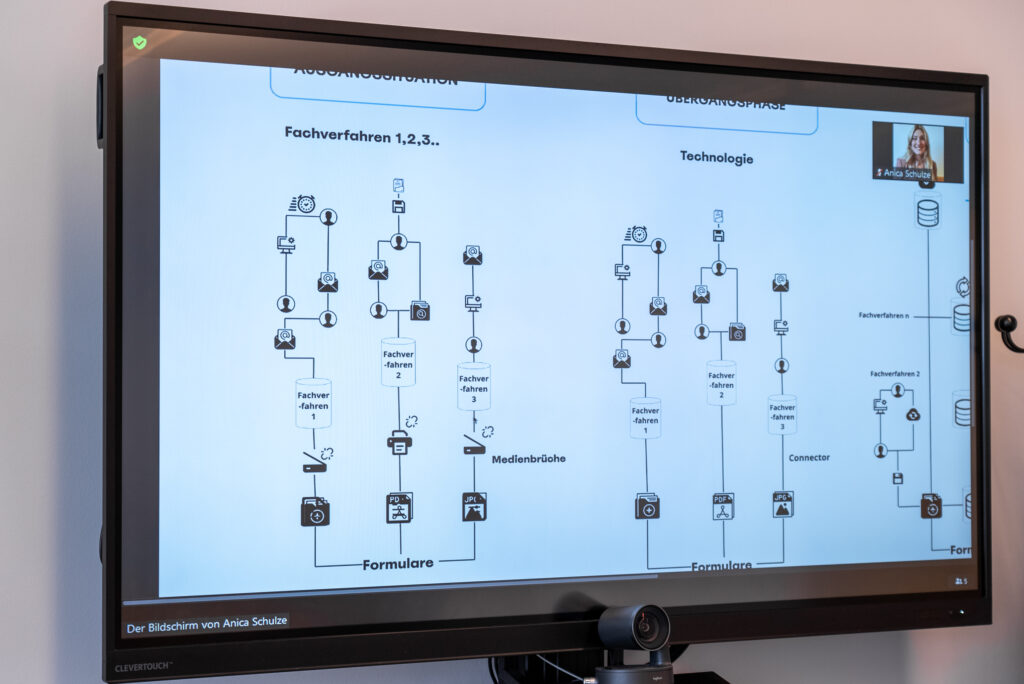
Discussion with students
The minister’s visit was followed by a talk with students on the bachelor’s degree program in digital administration, which is offered part-time and largely digitally at Hof University of Applied Sciences. When asked, they described their wishes to politicians. One of the main points was that the administration urgently needs to be more open to other skills and, above all, to career changers, as demanded, for example, by Maria Rohde, who is responsible for personnel and organizational development at the Miesbach district office in addition to her studies. This would also explicitly concern the attractiveness of the collective bargaining law for administrative employees.
In conclusion, Prof. Dr. Thomas Meuche addressed a very practical tip to all those who want to successfully advance digitization in public administration:
Pick a terribly outdated process that annoys as many as possible, then find the willing and improve that process. That’s exactly how to get people excited about digitization!”
Prof. Dr. Thomas Meuche
On June 28, 2023, the Competence Center for Digital Administration at Hof University of Applied Sciences will host a conference on the topic of processes and data structures. More information coming soon at: https://www.kompetenzzentrum-digitale-verwaltung.de/
